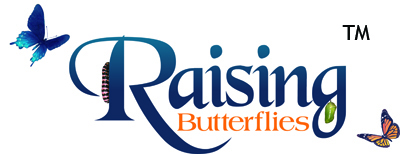Avoiding Diapause > High Humidity
Eggs, larvae, or pupae of some species groups will avoid diapause if exposed to timely high humidity. This is hopefully intutive because these conditions, in the right physiogeographic regions, promote new growth of larval host plants and adult nectar plants.
Always remember that, in the lab, raising caterpillars under high humid conditions isn't ever a good idea unless you're rearing Limenitis species or species from humid habitat. However, it is a good idea to expose multi-voltine pupae to intermittant mist spraying of water to encourage them to emerge.
Always remember that, in the lab, raising caterpillars under high humid conditions isn't ever a good idea unless you're rearing Limenitis species or species from humid habitat. However, it is a good idea to expose multi-voltine pupae to intermittant mist spraying of water to encourage them to emerge.
-
Mist Spraying Euchloe Pupae
Many swallowtail and pierids overwinter as pupae. By mist spraying pupae soon after pupation, that might provide the trigger to keep the pupa from hibernating and produce a live adult sooner. (However, sometimes, this technique does not work either.)


